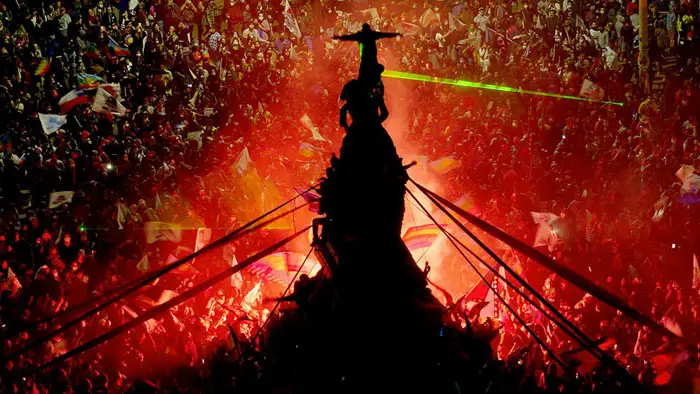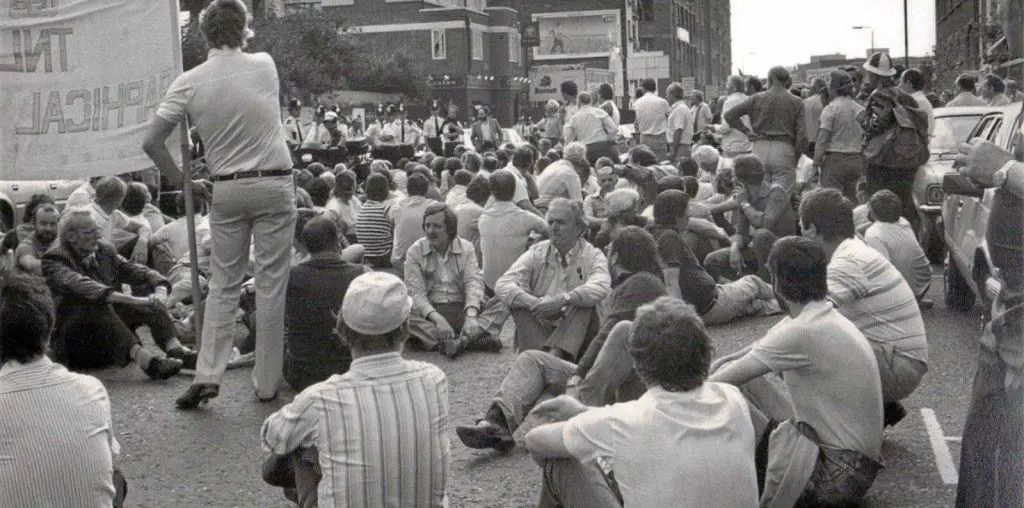
TORONTO INTERNATIONAL FILM FESTIVAL 2022 REVIEW! Some events fracture history. Participants in these events realize there is no going back to how things were before. Everyone realizes that things must change now, except for those in power. Acclaimed director Patricio Guzmán’s documentary, My Imaginary Country (Mi país imaginario), hurls the viewer right into the events and mass protests that profoundly changed his beloved Chile in 2019.
Guzmán’s work has, time and time again, revolved around Chilean history, and even when his documentaries focus a bit more on the natural world (Nostalgia for the Light), he splits the runtime between scientists trying to better understand Earth and politics. Guzmán will not allow Chile’s history to go silent. He will definitely not allow Augusto Pinochet’s crimes and the U.S.’s involvement in establishing and propping up his dictatorship to be forgotten by the Global North’s short memory.

“…made the mistake of raising transportation fares by 30 pesos. Young Chileans protested…”
Chile was stuck with Pinochet’s constitution even after the dictator died and the country established itself as a democracy. The common Chilean felt that the country was stuck in quicksand in terms of affordable housing, decimated pensions, education costs, ecological progress, patriarchal ideologies, and indigenous rights — especially for the Mapuche community. The poor felt their dignity was not acknowledged, as if they did not exist.
Then came the spark. President Sebastián Piñera made the mistake of raising transportation fares by 30 pesos. Young Chileans protested by jumping turnstiles in subway stations and refusing to pay. Those protests led millions to march in the streets. A large majority of Chileans were tired of piecemeal attempts at change that always ended in failure. They wanted Piñera’s Conservative government out, and they wanted a revamp of the Chilean constitution. The people wouldn’t accept any compromise.

"…Guzmán will not allow Chile’s history to go silent..."

